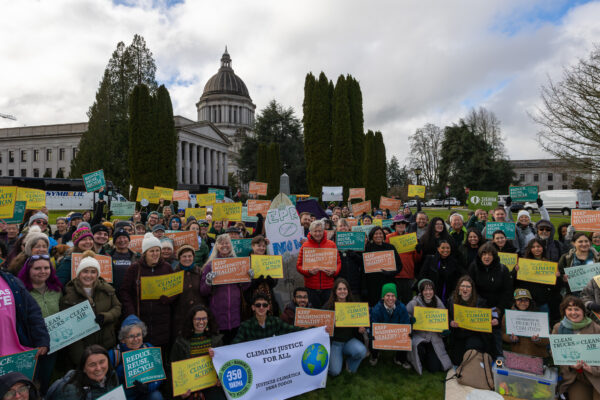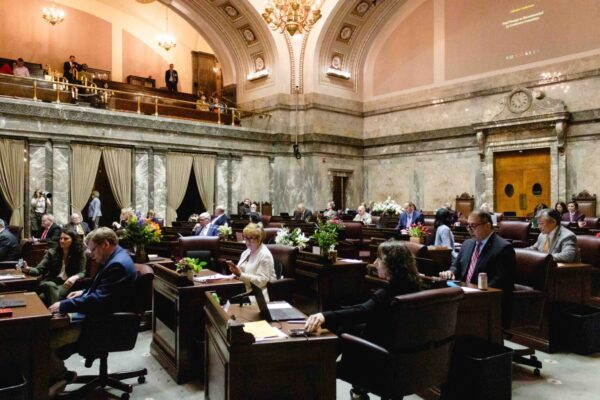Unfortunately, the oil industry’s influence prevented either Priority from passing. “One of the bright spots of this session has been the outpouring of support for these priorities from people from Spokane to Grays Harbor to Bellingham,” said Becky Kelley, Deputy Director for Washington Environmental Council. “Washingtonians want better protections for our communities and waterways and they’re ready to stop giving our tax dollars away to Big Oil.”
Closing the Big Oil Tax Loophole
One of the Environmental Priorities this year was to close the Big Oil Tax Loophole, an “accidental loophole” from 1949 that was never intended for oil companies. Sponsored by Rep. Reuven Carlyle, closing the loophole would have allowed legislators to reinvested $59 million back into K-12 classrooms and our communities. Oil companies, like BP and Shell, should not benefit from unnecessary giveaways that divert taxpayer dollars from schools scrambling to meet their budgets.
“This bill offered legislators a simple solution: hold oil companies accountable by making them pay their fair share of taxes,” said Jessica Finn Coven, Washington Director at Climate Solutions. “All over Washington, people are standing up to fossil fuels, and our elected leaders should do the same.”
Oil Transportation Safety Act
With at least seven major oil accidents since July and a sharp increase in the amount of oil spilled in waters nationwide, the environmental community proposed legislation designed to protect our communities and our environment from dangerous oil shipments. Washington is facing dramatic changes with oil traveling by rail. These changes are putting communities across the state at risk. Proposed new oil terminals would make Washington an oil export hub, and would increase threats associated with more oil tankers moving across Puget Sound, Grays Harbor, and the Columbia River.
The Oil Transportation Safety Act (HB 2347/ SB 6262), sponsored by Rep. Jessyn Farrell and Sen. Christine Rolfes, contained key tools to fill gaps in our current oil spill system and improve transparency to understand how much oil is moving by rail, pipeline, and vessel. The bill included a “Right-to-Know” provision to help communities statewide know how much and what type of oil is moving through areas where they live, work, and play. This Priority passed the House with bipartisan support, but strong oil company opposition prevented the bill from being heard in the Senate. Despite broad bipartisan interest in the issue, no bill was passed.
Legislative leaders committed to the Oil Transportation Safety Act, including the sponsors of the bill along with Sen. John McCoy, Sen. Kevin Ranker, and Rep. Joe Fitzgibbon, successfully included a budget proviso in the operating budget that directs the Department of Ecology and other state agencies to study the risks and vulnerabilities in the current oil transportation and oil spill prevention systems. This is an important first step to keep attention on this important issue and better understand the serious risks oil poses to our communities and waterways.
The environmental community will continue to work on these and other important issues after the 2014 session. “We need to have a conversation about our priorities as a state. Right now, Big Oil is standing in the way of what Washingtonians care about – the health of our environment, communities, and families,” Edie Gilliss, Acting Director of Washington Conservation Voters said, “We are going to tell that story to voters this year and continue to do so until real progress is made on tackling climate change and protecting Puget Sound.”



